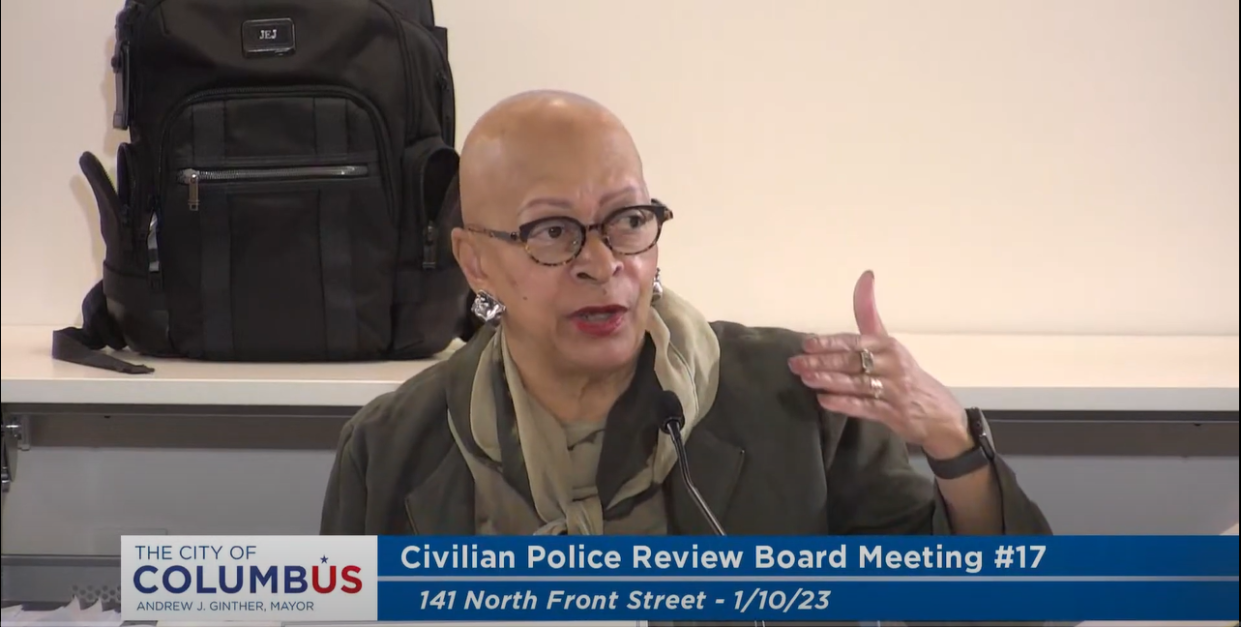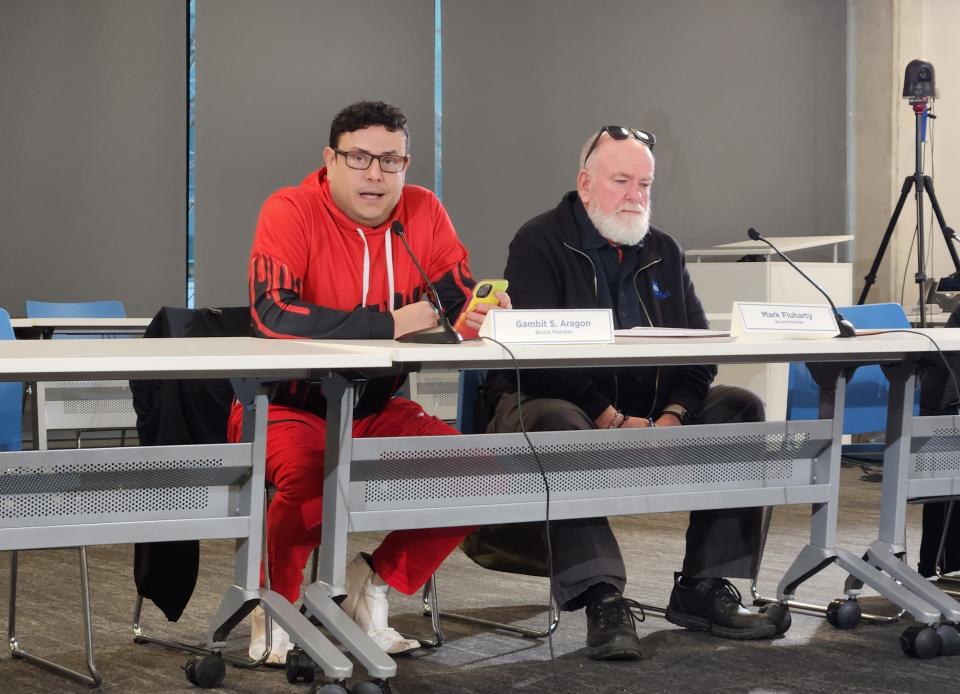Civilian Police Review Board to comply after admittedly violating Ohio Public Meetings Act

- Oops!Something went wrong.Please try again later.
The Columbus Civilian Police Review Board chairperson said the board will comply with the Ohio Open Meetings Act after members publicly stated at their Jan. 10 meeting that they previously held board committee meetings at a coffee shop and at least one member's home.
During the opening minutes of their Jan. 10 meeting, Board Chair Janet Jackson reminded committee chairs tasked with leading their groups in complaint reviews that they must comply with the state Open Meetings Act requiring public notice of any meetings of its committees.
“We had a case where there wasn't public notice, quite frankly, coming from the committee,” Jackson said. “We must absolutely make sure we are following that rule.”
The full Columbus Civilian Police Review Board, which is tasked with civilian oversight of the Columbus Division of Police, began its Jan. 10 meeting deliberating and voting on recommendations from its committees tasked with reviewing investigations presented by the city Inspector General's department.
The Ohio Open Meetings Act requires public bodies in Ohio to conduct all public business in open meetings that the public is notified about so that citizens may attend and observe, according to the Ohio Attorney General’s office. If any public body is meeting to "deliberate, discuss and conduct the people's business," notice of the meeting must be provided to the public at least 24 hours in advance.
Board Member Rev. Charles Tatum sought further clarification during the meeting, reporting that his committee had been meeting at a coffee shop.
“I was thinking of where we were meeting. How in the world is that going to be public? We were sitting in our group isolated at a coffeehouse,” Tatum said.
Jackson said during the recorded meeting that one of the board's committees met in a member’s home.
In an interview with The Dispatch, Jackson said there was only one incident of a lack of meeting notice in violation of state law, and the board had already addressed the issue of compliance during the Jan. 10 meeting.
“There could've been a situation, but it was not a big issue. It isn't a big issue,” Jackson said of violating the state's Open Meetings Act, which together with the state's Public Records Act are referred to as Ohio's Sunshine Laws.
“We are a volunteer group," Jackson said. "We are trained. We are trying our best to follow everything we are supposed to.”
Tatum, pastor of The Good Shepherd Baptist Church, said in an interview with The Dispatch that he also believed the issue of complying with the state public meeting law was “pretty much settled” at the meeting.
The office of Mayor Andrew Ginther declined comment on the board's admitted violation, referring The Dispatch's inquiry to the Columbus City Attorney’s office.
A spokesperson for City Attorney Zach Klein declined comment, saying that "any information we may have provided (to the Civilian Review Board) would be covered by attorney-client privilege."
What is the Ohio Open Meetings Act?
Public bodies must notify the public when and where each meeting will take place, including committees of those bodies, and must sometimes give notice of what matters will be discussed, according to the Ohio Attorney General’s website. Public bodies must establish, by rule, a reasonable method for notifying the public in advance of meetings.
In order for the Open Meetings Act to apply, the members of a public body must be meeting to discuss the public’s business. A meeting is a prearranged gathering of a majority of the members of a public body for the purpose of discussing public business.
What are the potential penalties for Open Meetings Act violations?
If any citizen believes that an Ohio public body has violated the Open Meetings Act, that citizen may file an injunctive action in a Common Pleas Court to compel the public body to obey the Ohio Open Meetings Act, according to the Ohio Attorney General's office. If an injunction is issued, the public body must correct its actions, pay a $500 fine, and could have to pay the complainant's court costs.
More importantly, any action taken by a public body while that body is in violation of the Open Meetings Act is invalid.
What's the status of board member Gambit Aragon III?
Review board member Gambit Aragon III was recommended for removal last month by the board after he used anti-police rhetoric on social media about the cancellation of a holiday drag event at a local school due to an internal dispute over security issues after the Ohio Proud Boys and members of other armed right-wing groups appeared to protest the event at the Red Oak Community School.
Aragon, who is gay and was involved in the security plan discussions before the event was canceled, also attempted to seek a board investigation of police conduct in the matter.
Dispatch columnist Theodore Decker: Might I suggest Columbus police no longer high-five extremists
Several of the board members said during the December meeting that Aragon’s comments had called into question his ability to maintain impartiality and credibility on police complaints the board reviews. Aragon, who could not vote, was recommended for removal by an 8-1 vote.

A certified letter formally notifying Aragon of the board's action was sent to him on Jan. 4, according to Melanie Crabill, spokesperson for Ginther. Prior to the board action, Ginther had publicly called for Aragon's resignation.
Aragon had until Friday to appeal the recommendation. By mid-afternoon Friday, spokespeople for the city mayor's office and city council said he had not appealed.
If he does not appeal, he will automatically be removed. If he appeals, the matter would be presented to Columbus City Council for a vote on the review board's recommendation.
@Colebehr_report
Cbehrens@dispatch.com
This article originally appeared on The Columbus Dispatch: Civilian Police Review Board admits public meeting law violation

